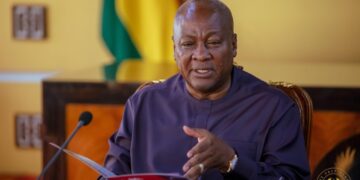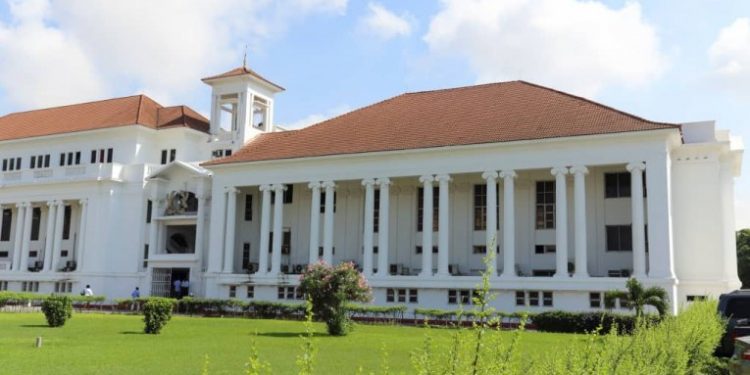The Supreme Court has set March 30, 2021, as the deadline for it to decide on a review application that allowed the Electoral Commission to certify John Peter Amewu as the Member of Parliament for the Hohoe constituency.
After Mrs. Grace Ewool, Chief State Attorney, and Mr Tsatsu Tsikata submitted their arguments, the court presided over by Justice Yaw Apau set the deadline.
He said that the Supreme Court violated the citizens’ basic human rights when it overturned a Ho High Court order prohibiting the Electoral Commission from posing Mr Amewu as Hohoe’s MP-elect.
Mrs Ewool rejected the appeal proposal, citing the state’s declaration of case submitted on January 5, 2021.
The concerns posed by Mr Tsikata, she said, had already been settled by the Supreme Court, and counsel was merely repeating certain claims.
Mrs Ewool added that SALL’s counsel had presented no fresh and significant concerns that would justify the grant of the review application.
She claimed that only ground eight of Mr Tsikata’s evaluation application should be regarded.
The five-member tribunal, chaired by Mr Yaw Appau on 5 January this year, held a unanimous opinion that the High Court made a mistake in issuing the order as it was unable to do so.
Although the Ho High Court’s ruling dealt with an electoral appeal, the court’s authority was invoked in the first instance, which dealt with human rights abuses.
It was also odd that the court orders were over Amewu’s election rather than the rejection of the citizens of SALL’s right to vote, it said.
As a result, all of the proceedings of the court’s sitting by Justice George Buadi, which issued the injunction freezing Mr Amewu’s gazetting, is ruled null and void.
On December 23, 2020, the Ho High Court issued an injunction to bar the EC from recognizing John Peter Amewu as the MP-elect.
The applicants argued that after the formation of the Oti Area, they were refused their right to vote in the Hohoe constituency, necessitating the creation of a new constituency.
The supreme court also ruled that the court’s order, which was issued on December 23, 2018, was no longer in effect as of January 5, 2020, since the court’s 10-day injunction had expired.
“Our authority should not apply to the Electoral Commission’s behaviour, which is regulated by C.I. 128. The EC is responsible for resolving the Buem constituency dispute.
“The question of whether they [the People of SALL] can vote in the Buem constituency is not before us. It’s a disagreement between the groups concerned and the Electoral Commission.
“What would it matter if the concerned persons were refused the ability to vote? What does it mean if the Hohoe MP-elect was gazetted? He is not an EC agent nor has he taken any judgments for the EC, so why should he be the focus of debate?”
“It would have been different if the SALL people said Amewu was not properly elected because of infractions, but that is not the case here,” Justice Appau said.
The Attorney-General was requesting a prohibition order to bar the Ho High Court from hearing the substantive argument of disfranchising the citizens of SALL, among other items.
The judge, though, reversed the ruling and awarded Justice Buadi the opportunity to proceed hearing the remainder of the lawsuit, which includes suspected human rights abuses.
The State had lodged an appeal with the Supreme Court to lift an injunction granted by the Ho High Court against Amewu.
The injunction was granted after some residents of Santrokofi, Akpafu, Likpe, and Lolobi (SALL) claimed that the Electoral Commission had violated their rights by refusing to encourage them to vote in the recently concluded parliamentary elections.
The citizens received an injunction to prohibit the EC from naming Mr Amewu the winner of the Hohoe parliamentary elections.
They claim that the existence of the Oti Area, along with a recent Supreme Court judgment and the EC’s inability to establish a constituency for them, resulted in them not voting for a parliamentary candidate in the recently concluded election.
Source: ATLFMNEWSROOM

























